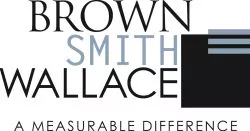Note to readers: As of this writing, efforts are still underway in Washington to repeal the Affordable Care Act. Please bear this in mind as you read the article below, and consult your benefits advisor for the latest developments.
A Health Reimbursement Arrangement (HRA) generally must be integrated with a qualifying non-HRA group health plan to satisfy the Affordable Care Act's (ACA's) annual limit prohibition and preventive services mandate. Integration must occur with respect to each employee, spouse and dependent covered by the HRA.
In 2015, the IRS clarified that a family HRA — one that reimburses the medical expenses of an employee's spouse or dependents — cannot be integrated with self-only coverage under the employer's non-HRA group health plan. Earlier this year, the Department of Labor, the Department of Health and Human Services and the IRS jointly issued two FAQs that address situations in which the non-HRA group health plan covering an employee, spouse or dependents is sponsored by the spouse's employer.
Clarifications and Obligations
The first FAQ confirms that a family HRA can be integrated with a non-HRA group health plan sponsored by the employer of an employee's spouse if that non-HRA plan covers all of the individuals who are covered by the HRA. For this purpose, the employer sponsoring the HRA may rely on its employees' reasonable representations that they and the other individuals covered by their family HRAs are also covered by non-HRA group health plans that meet the applicable integration requirements.
The second FAQ explains that a family HRA can be integrated with a combination of:
- Self-only coverage for the employee under a non-HRA group health plan sponsored by the employer that sponsors the HRA
- Coverage for the other individuals under a non-HRA group health plan sponsored by the spouse's employer
All individuals covered by a family HRA must also have non-HRA coverage. But the integration rules don't require that those individuals be enrolled in the same non-HRA group health plan or that the HRA and non-HRA group health plan share the same sponsor.
Please note, however, that integration with another employer's plan doesn't appear to relieve HRA sponsors of the obligation to maintain their own non-HRA group health plan that's not limited to excepted benefits and may impose reporting obligations under the ACA. Furthermore, if the non-HRA coverage doesn't provide minimum value, the HRA must limit reimbursements to co-payments, co-insurance, deductibles and premiums under the non-HRA coverage with which it's integrated. The HRA needs to also limit medical care expenses that aren't essential health benefits.
Additional Flexibility
If your organization sponsors an HRA, you'll likely welcome these clarifications and the additional flexibility they provide. In particular, you may appreciate confirmation that you can rely on employees' representations regarding non-HRA coverage sponsored by other employers (though details aren't provided regarding when reliance will be considered reasonable).
The DOL's Annually Adjusted Health Plan Penalties for 2017
In 2015, Congress enacted legislation requiring an initial "catch-up" adjustment to specified penalty amounts for benefit plan violations, followed by annual adjustments. Regulations issued in 2016 established the catch-up amounts and called for future adjustments by January 15 of each year, starting in 2017.
Sure enough, in January, the Department of Labor (DOL) issued the first annual adjustment of civil monetary penalties for a wide range of benefit-related violations. These adjustments are effective for penalties assessed after January 13, 2017, with respect to violations occurring after November 2, 2015.
For group health plans, the maximum penalty for failing to provide the summary of benefits and coverage required under the Affordable Care Act increases from $1,087 to $1,105 per failure. Penalties of $112 per participant per day, up from $110, may be assessed for:
- Violations of the Genetic Information Nondiscrimination Act, such as establishing eligibility rules based on genetic information or requesting genetic information for underwriting purposes
- Failures relating to disclosures regarding availability of Medicaid or children's health insurance program assistance
Also, the agency addressed the concern that the 2016 penalty increases affecting group health plans would discourage employers from adopting plans. The DOL expressed its view that the increases won't have a detrimental impact on employer-provided plans. The agency noted that it hasn't automatically imposed the maximum penalty in the past and has no plans to change its enforcement policy as a result of the increases.
If you have questions about HRAs, please contact Ron Present, Partner and Health Care Industry Group Leader, at rpresent@bswllc.com or 314.983.1358.
The content of this article is intended to provide a general guide to the subject matter. Specialist advice should be sought about your specific circumstances.

